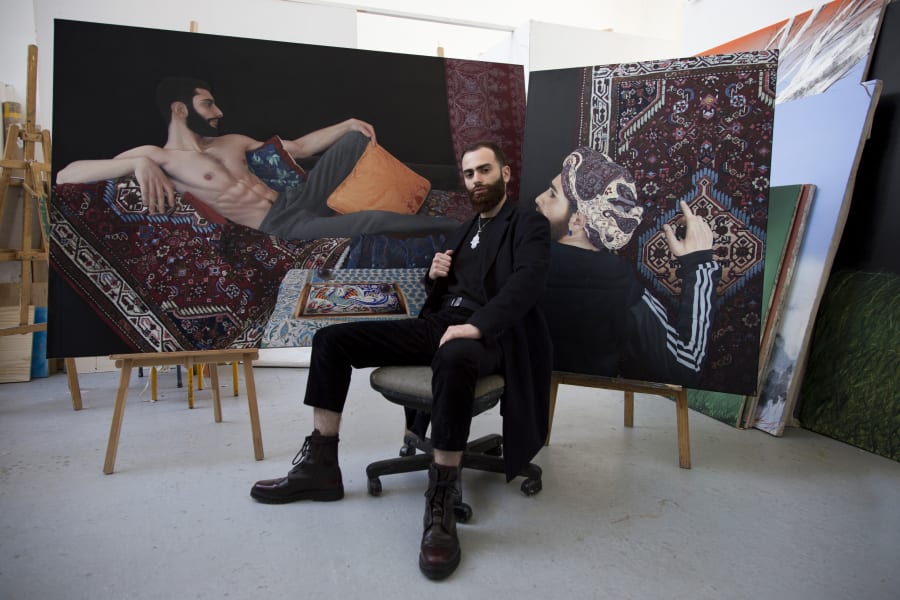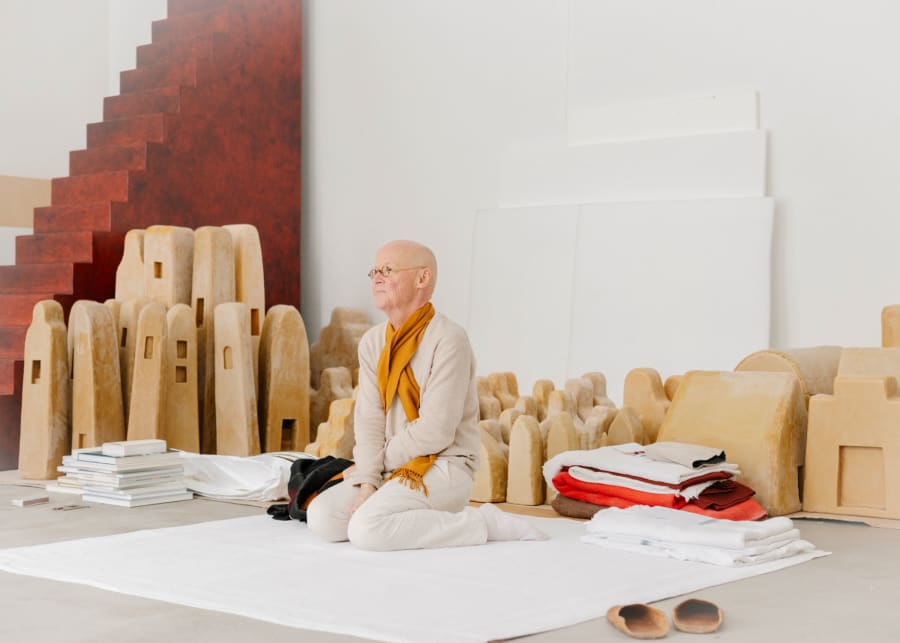Valentin Noujaïm blurs the boundaries between cinema and video art. Born in France to Egyptian and Lebanese parents, he interweaves real and imagined lives to create complex narratives, populated by enigmatic creatures. His work holds a mirror up to the complexities of power and dominance – particularly racial – at play in contemporary society. In his films Noujaïm blends the history of colonialism with more intimate stories of family and everyday life, merging collective and individual memories. His filmic works offer a political narrative and celebrate the muted revolt of marginalized voices. In Saturnalia (2023), a decadent Roman banquet is the setting for the rebellion of three servant girls of color against the humiliations they are made to endure. Similarly, To Exist Under Permanent Suspicion (2024) presents the dreams of destruction and revolt of a Black businesswoman promoting a new office skyscraper.
Noujaïm’s experimentation with video formats, from 16mm to digital, as well as with special effects and performance, enables him to free himself from linear narratives and bring to life subjects who evolve in a parallel imaginary universe, an idealised refuge, which becomes a safe space for minorities. In Daughters of Destiny (2021), three friends find themselves propelled into a Queer cabaret inhabited by dazzling, supernatural characters, evoking Thierry Mugler’s iconic fashion show at the Cirque d’Hiver in Paris in 1995. These fantastical worlds often unfold in clearly identified urban settings: the Paris suburbs. Pacific Club (2023) is set in the business district of La Défense, which was built in the 1960s in the north-west of Paris. The work traces the history of the eponymous nightclub, reputed to be the first to welcome those of Arab descent hailing from the edge of town.
The artist also explores the fractured histories of his own family and its experiences of exile, as in The Blue Star (2019-2020) in which he draws on his personal archives, to trace the life of a man emigrating to France, escaping to a place where his language could be understood. In Avant d’oublier Héliopolis (2019), the filmmaker asks his grandmother to recall her youth in Cairo, blending postcolonial heritage with family mythology. Noujaïm’s work, marked by collective resistance and radical emancipation, reminds us that struggles and dreams, revolutions and the imaginary, remain as intimately linked to each other in history as they are in the present moment.
Martha Kirszenbaum is a curator, art critic, and editor. She is based in Paris.
Caption for top image: Valentin Noujaïm, To Exist Under Permanent Suspicion (still), 2024. Courtesy of the artist.
Published on July 1, 2024.


